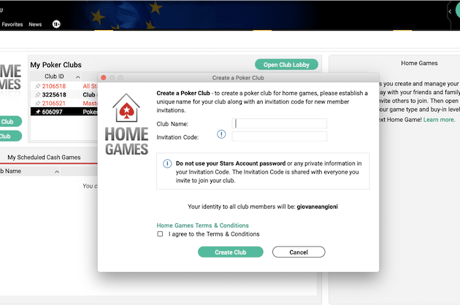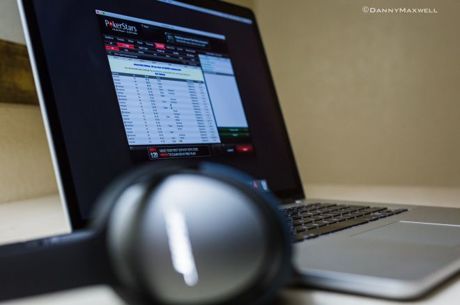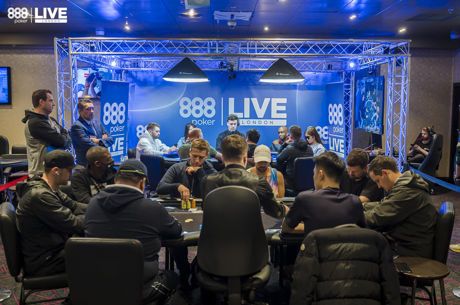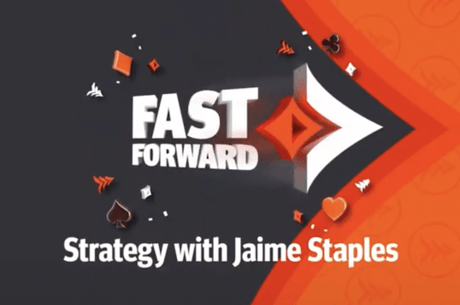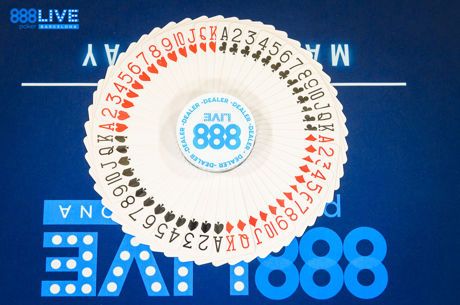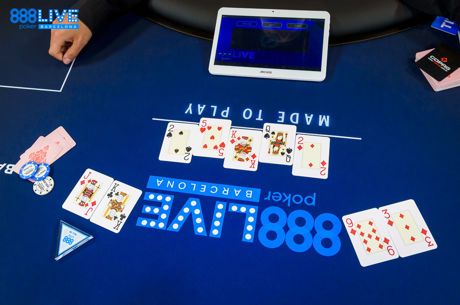Poker Button, Blinds, Ante and Straddle Explained

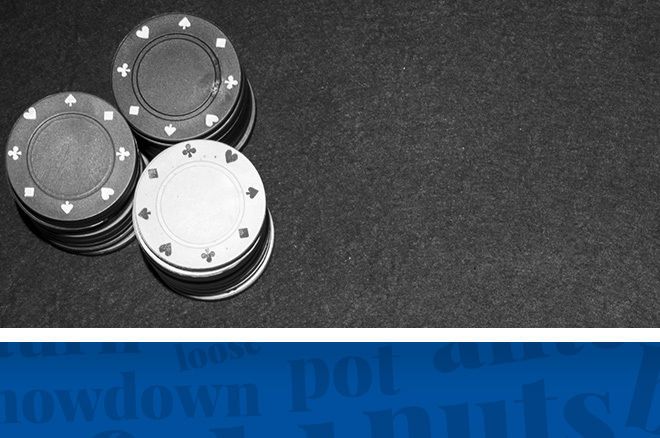
You have learned the poker rules, and known all the poker hand rankings off by heart. You are ready to jump into your first poker game of Texas Hold’em or Omaha poker and play poker with friends, but one thing is bothering you: you do not know what some of the poker terms mean.
Poker, like other games and sports, has its own technical terms and slang used by players to describe certain hands and actions. These poker terms can appear confusing at first, but you need not worry because PokerNews is on hand to explain four common poker terms that every beginner needs to know.
Ever wondered what the button in poker is? What are antes in poker? How do blinds in poker work? And what is a poker straddle?
Fear not, PokerNews is here to help!
Keep reading this poker guide to find out all about these terms, so you can effortlessly chime in with your expanded vocabulary at your next poker homegame or on a real money poker site.
- The button - the best spot to be in all of poker
- The straddle - the perfect way to liven up your homegame
- Antes - Learn what they are right here
The Button in Poker
The button, or dealer button, is what represents the dealer during a hand of poker. Both online poker and live poker games use a dealer button so you know who is the dealer during a particular hand.
Years ago, the button was known as the "buck" because it was a clasp knife with a buckhorn handle. It is what coined the popular phrase "the buck stops here."
The reason the button has its name is that it is a physical disc that is not too dissimilar to a button; we told you poker terms were simple! The term can also be used to describe the last person to receive cards. For example, "I raised to $10 from the button," or, "I was on the button holding pocket aces."
Being 'on the button' in poker is considered the best position at the poker table as you’ll be the last to act on every street – use this to your advantage!
Online poker games see the software move the button move clockwise after the completion of a hand. In a live poker setting, the dealer moves the actual button one seat to the left.
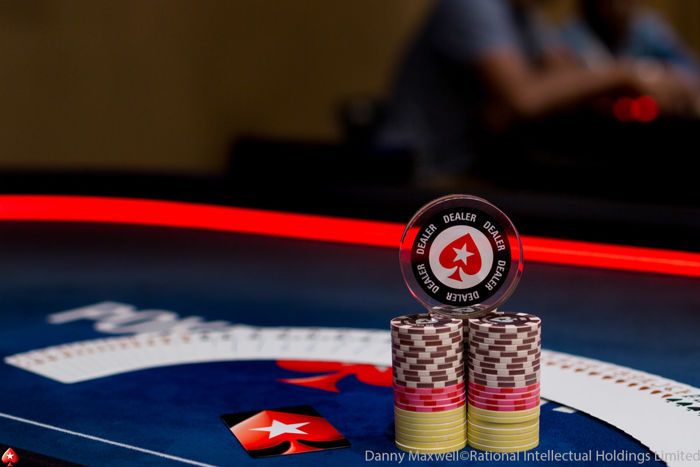
Poker Blinds and Straddle - The Basics
Poker players are always talking about the 'blinds'. But what are the blinds in poker? The blinds are forced bets that force the action in a poker game. In Hold'em games, tend to come in two easy-to-remember sizes: the small blind and the big blind. The small blind is paid by the player to the immediate left of the dealer, or button. A big blind, which is usually twice the size of the small blind, is paid by the person to the immediate left of the small blind.
Knowing the sizes of the blinds is easy, so do not worry about getting them wrong. In real money poker games such as cash games, the blinds are in their title, for example, $1/$2 or $20/$40. The small blind in the former is $1 and the big blind is $2. In the latter, $20 is the small blind and $40 is the big blind.
Tournament blinds are slightly different because they increase after a set time. The dealer will always be on hand to inform you of the blinds' cost, and it is common to have the blinds displayed on screens around the poker room.
Blinds are crucial to Texas Hold'em and Omaha poker games because they force the players to get involved in the action. The players to the left of the blind can either fold, call, or raise. Calling is a term used to describe matching the largest bet at the table, in this case, the big blind.
Don't miss: Five popular poker games you NEED to know
What is a Straddle?
A straddle in poker is a voluntary bet made in cash games in addition to the blinds. Straddles are relatively common in live cash games, but they are also available at some online poker sites.
Players can announce their intention to straddle from anywhere on the table. However, under the gun (the player to the direct left of the big blind) and on the button are the two most common positions straddles come from.
Any straddle has to be at least double the size of the big blind. Making a straddle bet is risky because you are paying two big blinds before you have received your hole cards. Games with straddles in place tend to have larger pots because of the extra money paid preflop.
If you are playing a poker homegame with your friends or are playing a micro-stakes poker game just for fun, the straddle is a fantastic tool to add to liven up your homegame.
Let’s splash some chips around!
What Are Antes?
We now know what the blinds are, but what are antes in poker? Antes are similar to the blinds in that they are forced bets placed before the start of each hand. Antes are more common in tournament poker, but some cash games have antes in play, too.
Unlike the blinds, everyone at the table pays the ante when they are in play. Antes tend to be much smaller than the blinds and are usually between 10-15% of the big blind. For example, a tournament with antes in play may have a 500 small blind and a 1,000 big blind. Antes will likely be between 100 and 150.
Poker games without a flop, such as Seven Card Stud and Razz, have antes in play because they do not have blinds in play.
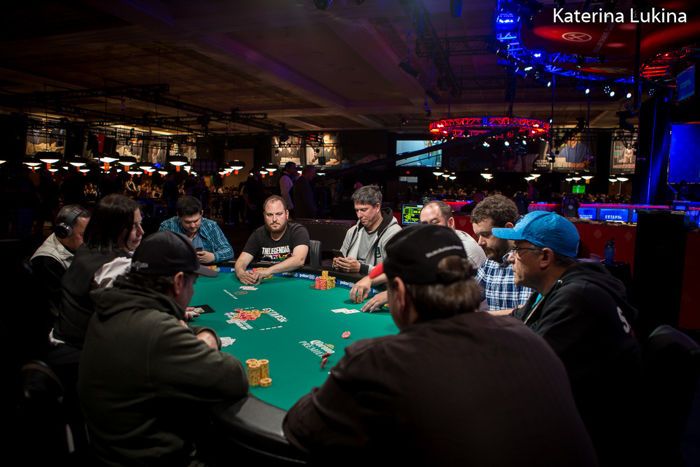
What is the Big Blind Ante?
A relatively new development in the world of poker is the big blind ante. Tournaments having a big blind ante are growing increasingly common because they help to speed up the game.
Traditionally, everyone at the table pays an ante when they are in play, but this slows the game down. Players do not always have the exact ante amount, so the dealer has to spend time to ensure nobody is short-changed, which takes up valuable time. Furthermore, the dealer often has to remind players to post their antes.
The concept of a big blind ante is a simple yet effective one. Whoever is seated in the big blind pays the ante for every player at the table instead of individual players paying it. Having a big blind ante in play makes stealing the blinds more desirable because there are a lot of chips to be won!
If you're interested in learning more about the novel big blind ante concept, make sure to check out these articles below:
- PokerStars Tournament Director Explains Big Blind Ante Decisions - Learn why PokerStars has incorporated the concept at their tournaments.
- The Pros and Cons of the Big Blind Ante - Here's what's good and bad about this new concept.
Put Your New Poker Knowledge to the Test
It is time to put your new poker knowledge to the test by playing some online poker or poker freerolls. There is no better way to familiarize yourself with terms and phrases than by putting yourself among those using the said terms.
Don't miss these exclusive online poker bonus offers to get the best bang for your buck!
You do not even have to risk any money while you learn the ropes because online poker sites regularly run freeroll poker tournaments that have no buy-in. Some sites even have a "play money" version where there is no monetary value attached to the chips.
Play a few hands of poker, enter a couple of tournaments, and you will be speaking like a poker pro in next to no time!
Poker Button, Straddle, Ante & Big Blind Ante FAQ
What is the button in poker?
The button, or dealer button, is what represents the dealer during a hand of poker. Both online poker and live poker games use a dealer button so you know who is the dealer during a particular hand.
What is the straddle in poker?
A straddle in poker is a voluntary bet made in cash games in addition to the blinds. Straddles are relatively common in live cash games, but they are also available at some online poker sites.
What is the ante in poker?
Antes are forced bets placed before the start of each hand. Antes are more common in tournament poker, but some cash games have antes in play, too.
What is the big blind ante in poker?
A relatively novel concept, whoever is seated in the big blind pays the ante for every player at the table instead of individual players paying it.
Additional Readings
If you're interested in learning more about poker, you can't miss these articles below:
- PokerStars freeroll events (PokerNews-exclusive): a full list of online free poker tournaments available exclusively to PokerNews readers.
- The best mobile poker apps in 2021: a complete overview of the top free poker apps available today with tips to play the best games of Texas Hold'em, Omaha, and more.
- Best online poker sites in 2021: these are all the top websites to play online poker in 2021, ranked from easy to hard!


